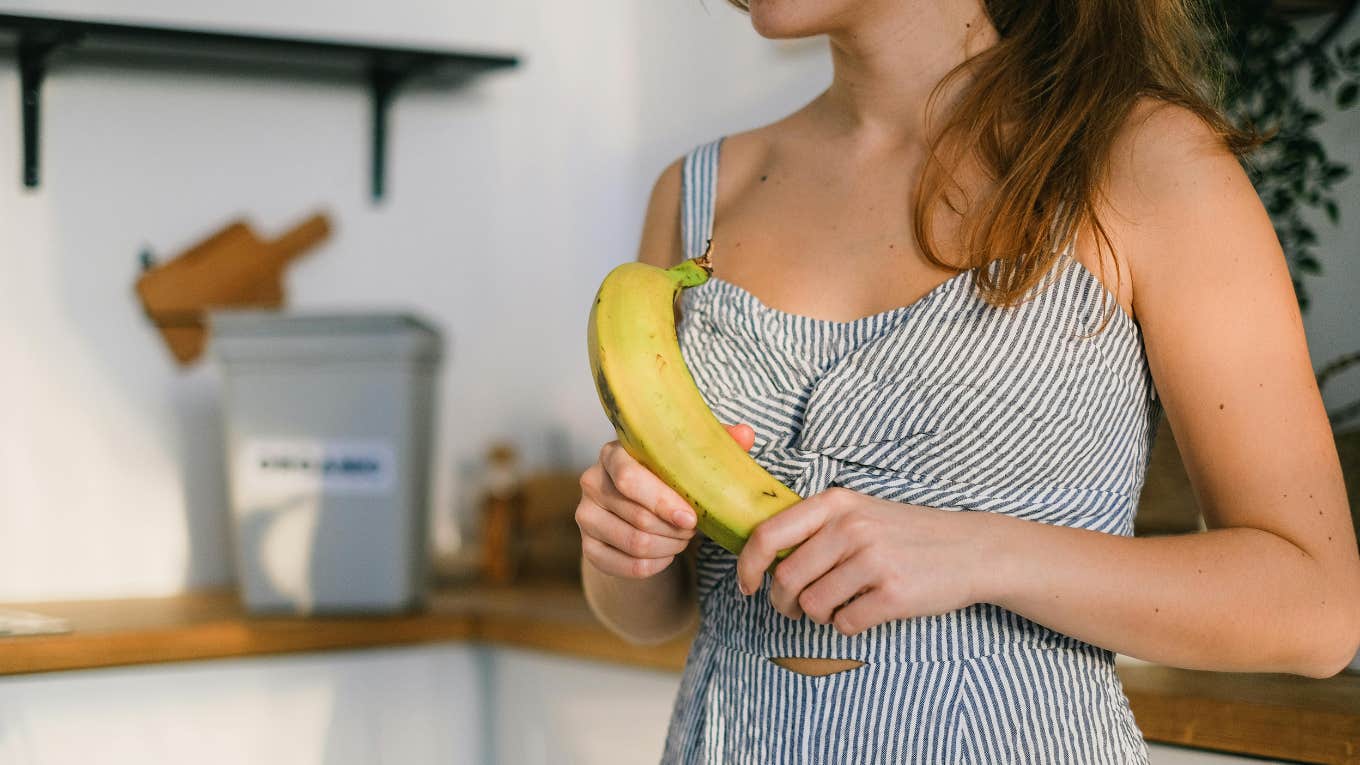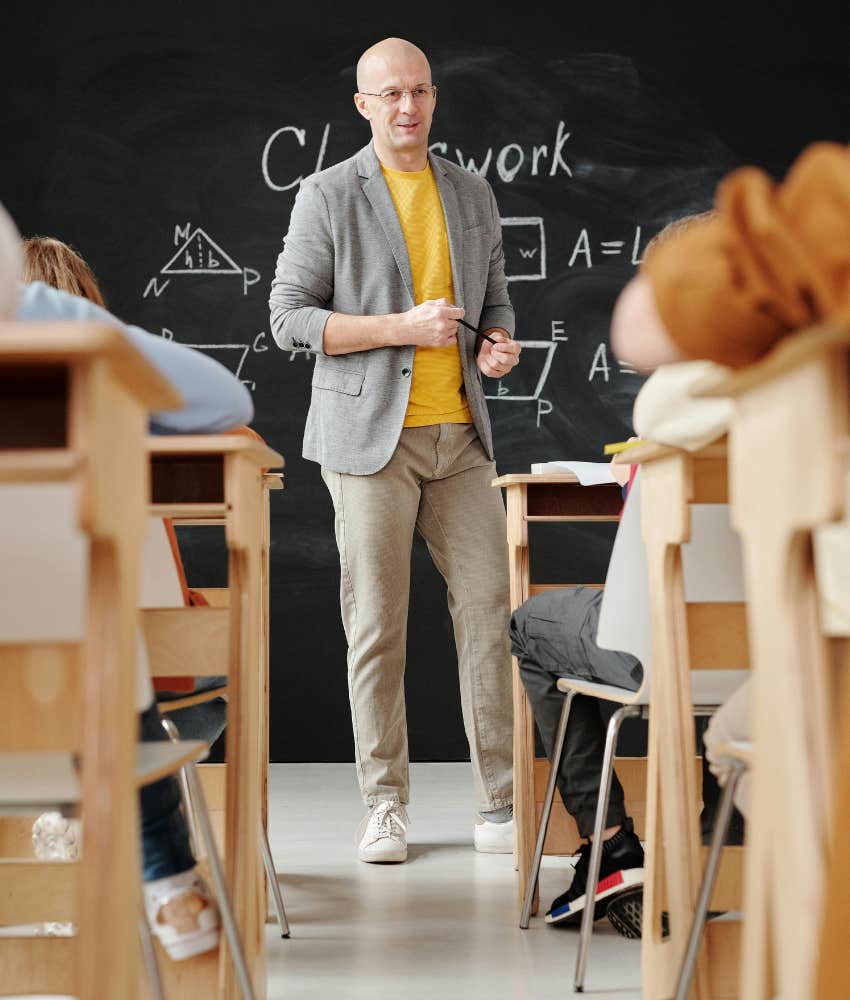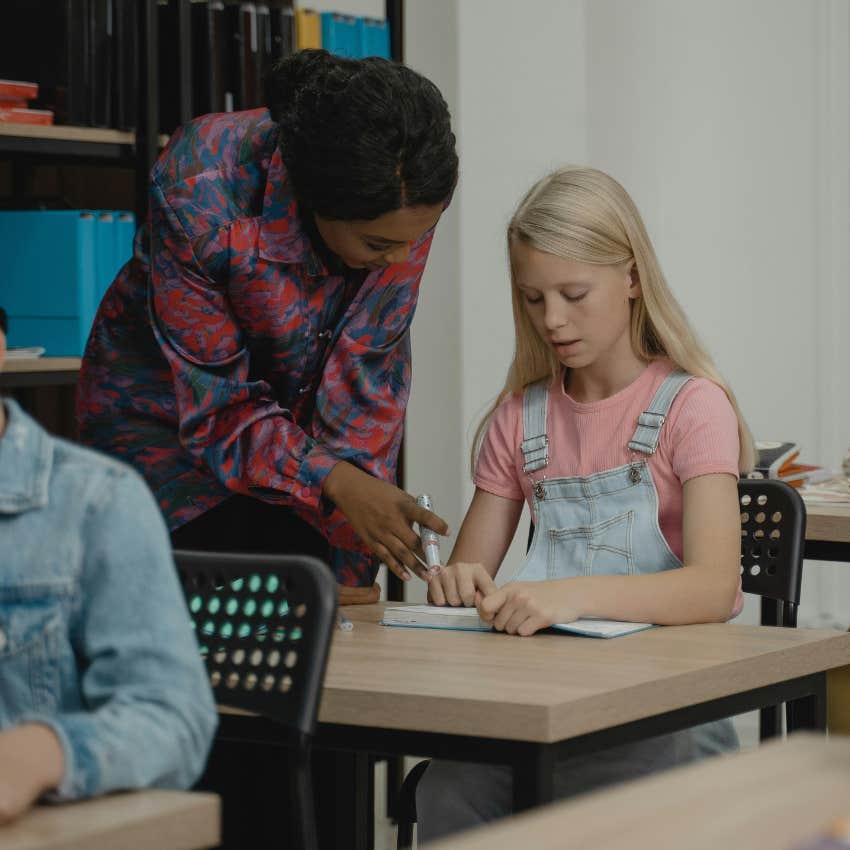Mom’s Solution To Her Child Punching A Teacher In The Face Was To Pack A ‘Calming Banana’ In The Kid’s Backpack
It's not really about the banana.
 Shvets Production / Pexels
Shvets Production / Pexels Working in education is an inherently stressful profession, more so now than ever before. Teachers often find themselves negotiating between parents, kids, and administrative officials, and sometimes, they’re placed in situations with students that put them in direct danger.
Justin Baeder, an education expert, discussed a viral tweet from a teacher who was assaulted by a student. The teacher emailed the student’s parents to let them know that the boy punched him in the face and broke his glasses, and the response he received was unexpected, to say the least.
The mom’s solution to her child punching the teacher was to pack a ‘calming banana’ in his backpack.
Instead of apologizing or coming up with a plan to discourage recurring violent behavior, the mom told the teacher that she was providing her son with “a calming banana” to eat when he arrived at school.
The mom stated, “He may be hungry after the bus ride and acting out because of this. Hoping that the ‘calming banana’ can be his special superpower to get him back on track.”
In his commentary, Baeder shared, “I assume this is a student with an IEP, I assume there’s a disability involved because the student is apparently coming right back to school.”
Baeder pointed out the lack of empathy and compassion in the parents’ reaction, as their response didn’t include an apology or an offer to replace the teacher’s broken glasses.
 Photo: Max Fischer / Pexels
Photo: Max Fischer / Pexels
“The response was, ‘Oh, we’re gonna send him to school with a banana in case he gets hungry on the bus ride over and hopefully that can interrupt this pattern of behavior.’”
“How did we get to this point as a society where the parent thinks not, ‘How can I make this right with the teacher’… not, ‘Oh, I’m so sorry that this happened,’ but, ‘Let’s be on the same page, the banana is the solution to this problem,’” Baeder said.
'On what planet is a banana a solution to the problem, not just for tomorrow, but in life?' Baeder asked.
Baeder raised a valid point about accountability for harmful behavior, wondering, “Are you going to pin your kid’s freedom from incarceration or worse on the availability of a banana?”
He acknowledged that being hungry can affect a person’s behavior, but he also looked to the larger issue at hand, saying, “You know what else affects your behavior? Your choices.”
“We have to focus on the choices that kids are making because that is the part that they control. That is the part they can take with them,” he continued. “You’re not always gonna have a banana in life to pin your good behavior on. You’re not always going to be rescued by the banana.”
He noted that ultimately, “the banana is not the problem here. Being slightly hungry does not make you punch someone and if it might slightly increase your likelihood of punching someone, you gotta get control over that.”
 Photo: Tima Miroshnichenko / Pexels
Photo: Tima Miroshnichenko / Pexels
“As a parent, you gotta realize that is where your main opportunity lies: Not to prevent these situations from occurring but to raise your kid in such a way, to whatever extent you can, that they don’t do things like this,” he said.
Baeder questioned what kind of guidance parents are receiving if their response to their child’s violent outburst was to slough off any form of personal responsibility or consequence and instead, offer up a snack.
He emphasized the point that the teacher himself made, that teachers are leaving the field because they feel physically unsafe.
Baeder shared his belief that the parents are using the banana as an excuse, as though their kid hitting his teacher was because of some “unmet need.”
“When did we lose sight of the fact that behavior is a personal responsibility, even for students with disabilities?” He asked. “We don’t want to give consequences and punish kids for things that they don’t have any control over, but I don’t think it’s healthy to say that this student does not have any control over their behavior.”
He made the argument that kids need to reach adulthood capable of making decisions about how to act “that don’t endanger them and don’t endanger other people.”
Ultimately, school is a place for kids to learn things like responsibility and other aspects of socialization. Yet teachers shouldn’t be putting themselves in harm's way to do so, especially when it seems that parents aren’t reinforcing those valuable lessons at home.
Alexandra Blogier is a writer on YourTango's news and entertainment team. She covers social issues, pop culture analysis and all things to do with the entertainment industry.
